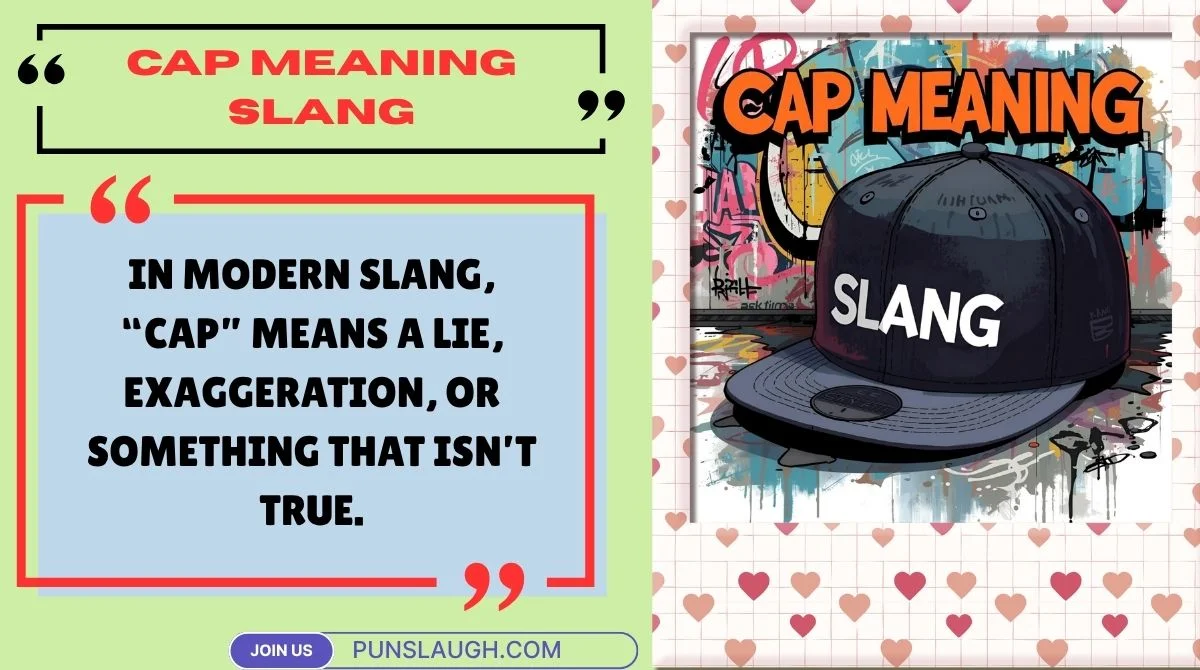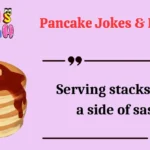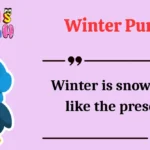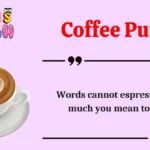Language on the internet moves fast, but some slang sticks around and becomes part of everyday talk. “Cap” is one of those words.
If you scroll through TikTok comments, listen to rap lyrics, or chat with friends online, you’ve probably seen or heard it.
But what exactly does cap mean in slang? How do you use it right, and why has it stayed so popular all the way into 2025?
This guide breaks it all down — no cap.
Introduction: The Rise of “Cap” in Modern Slang
Slang terms rise and fall with online culture, but “cap” has endured.
It’s short, catchy, and packs a punch in conversation. At its core, it’s about truth versus lies.
You’ll hear it in gaming chats, see it in viral memes, and even catch it in business settings where younger professionals hang out.
This staying power shows how internet slang can bridge generations and cultures.
What Does “Cap” Mean in Slang?
In modern slang, “cap” means a lie, exaggeration, or something that isn’t true.
When someone says “That’s cap,” they’re basically saying, “That’s a lie” or “You’re bluffing.”
Here’s a quick look at how it sounds in conversation:
“You hit a million followers in one week?”
“Man, that’s cap.”
It’s short, direct, and often playful.
While it started as part of African American Vernacular English (AAVE), it has become mainstream thanks to social media and music.
No Cap Meaning (When You’re Telling the Truth)
On the flip side, “no cap” is used to stress honesty or seriousness.
Think of it as saying “for real” or “I’m not lying.”
Examples:
- “This is the best pizza in town, no cap.”
- “I’m dead serious, no cap.”
- “She’s the funniest person I’ve met, no cap.”
The phrase adds emphasis and signals to your audience that you’re not joking.
It’s often used in casual texting, memes, and even captions on social media posts.
Stop Capping Meaning (Calling Out a Lie)
When someone is exaggerating or obviously lying, you might say:
“Stop capping.”
It’s a call-out phrase used in friendly teasing or serious disagreement.
It tells the other person to stop stretching the truth.
Examples:
- “You can dunk on LeBron? Stop capping.”
- “You finished that project in one hour? Stop the cap.”
It’s a versatile phrase that can be playful among friends or sharp in heated debates.
Origin and Evolution of “Cap”
The story of “cap” is as interesting as the slang itself.
- Early roots in AAVE: In the late 20th century, “to cap” meant to brag or boast falsely.
- 1990s Hip-Hop: Southern rap scenes used “cap” in lyrics to call out fakes or exaggerators.
- 2017 Mainstream Moment: The rise of trap music — especially artists like Future, Young Thug, and Offset — brought “no cap” into popular lyrics.
- TikTok & Meme Culture: By 2019-2020, the term exploded on TikTok. Hashtags like #NoCap gathered millions of views, making the slang part of global youth culture.
Its journey shows how slang often starts in subcultures and spreads globally through music and social platforms.
Cap Slang in Pop Culture and Music
Music — especially rap — has been the biggest driver behind the spread of “cap.”
Famous examples:
- Future’s 2017 track “No Cap” helped push the phrase into mainstream.
- Young Thug and Gunna popularized it further in their lyrics.
- Drake and other global artists used it in interviews and tracks, reinforcing its meaning.
Pop culture references didn’t stop at music.
Influencers, YouTubers, and even sports commentators started dropping “cap” and “no cap” into everyday speech, turning it into a cultural staple.
Cap on TikTok and Social Media
If music sparked the trend, TikTok gave it global wings.
The platform thrives on short, punchy phrases — and “cap” fit perfectly.
Creators used it in comedy skits, dance challenges, reaction videos, and memes.
Some viral trends:
- Emoji trend: 🧢 used as a substitute for typing “cap.”
- Videos where creators called out fake stories with dramatic “That’s cap!” captions.
- Meme duets where people responded to wild claims with “no cap” or “stop the cap.”
On Twitter, Instagram, and YouTube comments, the slang became a common way to agree, disagree, or highlight lies with just a single word.
Cap vs. No Cap vs. FR vs. Bet (Comparison Table)
Here’s a quick reference to understand how these slang terms differ:
| Term | Meaning | Tone | Typical Usage Example |
|---|---|---|---|
| Cap | A lie / falsehood | Casual, playful | “You won the lottery twice? That’s cap.” |
| No Cap | Honest / truthful | Emphatic | “This burger’s better than any other, no cap.” |
| FR (For Real) | Sincere agreement | Neutral | “You’re right about that, FR.” |
| Bet | Agreement / confirmation | Confident, chill | “You’re joining the game later? Bet.” |
This table highlights how these words help keep online and face-to-face conversations short and expressive.
How to Use “Cap” and “No Cap” Naturally
To use slang like a native speaker, you need to get the tone right.
Here are some tips:
- Casual settings: Texting friends, gaming chats, memes, and DMs are perfect for it.
- Playful tone: Avoid using it in formal business emails or serious discussions unless the context is casual.
- Balance: Overusing slang can sound forced.
Mini-dialogues for context:
In a gaming chat:
A: “I just took down the boss solo.”
B: “That’s cap. Show the screenshot.”
In a group text:
A: “I’m getting free tickets to the concert.”
B: “For real?”
A: “Yes, no cap.”
Understanding these nuances makes conversations feel authentic.
Global Popularity of “Cap”
Although rooted in African American culture, “cap” has spread worldwide.
- UK & Europe: Youth often use “no cap” in social posts and gaming communities.
- Canada: Adopted widely through shared media and similar slang culture.
- Nigeria & Ghana: “Cap” appears in memes and pop-music slang.
- South Asia (India, Pakistan): English-speaking influencers use it in reels and short videos.
The spread shows how social media and streaming services make slang universal.
Linguistic Insights: Why “Cap” Caught On
There’s a linguistic reason why “cap” became so popular:
- It’s short, punchy, and easy to type or say.
- It resonates with a universal theme: calling out truth vs. lies.
- It’s versatile, fitting in memes, jokes, arguments, and even captions.
In today’s meme-driven, fast-scrolling world, short words with strong meanings tend to thrive.
“Cap” checks all those boxes.
FAQs About Cap Slang
What does “cap” mean in slang?
“Cap” means a lie, exaggeration, or something fake. Saying “That’s cap” calls out dishonesty.
What does “no cap” mean?
“No cap” is used to emphasize honesty or seriousness. It’s like saying “I’m being 100% real.”
Is “cap” still popular in 2025?
Yes. Despite many slang terms fading, “cap” remains widely used in social media, music, and youth culture.
Can I use “cap” in professional settings?
It’s best avoided in formal communication. Stick to casual conversations, online chats, and social posts.
What’s the difference between “cap” and “clout”?
“Cap” refers to lying or exaggerating.
“Clout” refers to influence or social status, often gained online.
Conclusion
In a world full of claims, opinions, and online debates, having a simple, one-syllable word to call out lies or emphasize truth is powerful.
“Cap” remains a cultural mainstay because it’s relatable, quick to use, and authentic.
From rap lyrics to TikTok memes to gaming chats, the word continues to connect people across cultures and generations.
No cap, it’s here to stay.





